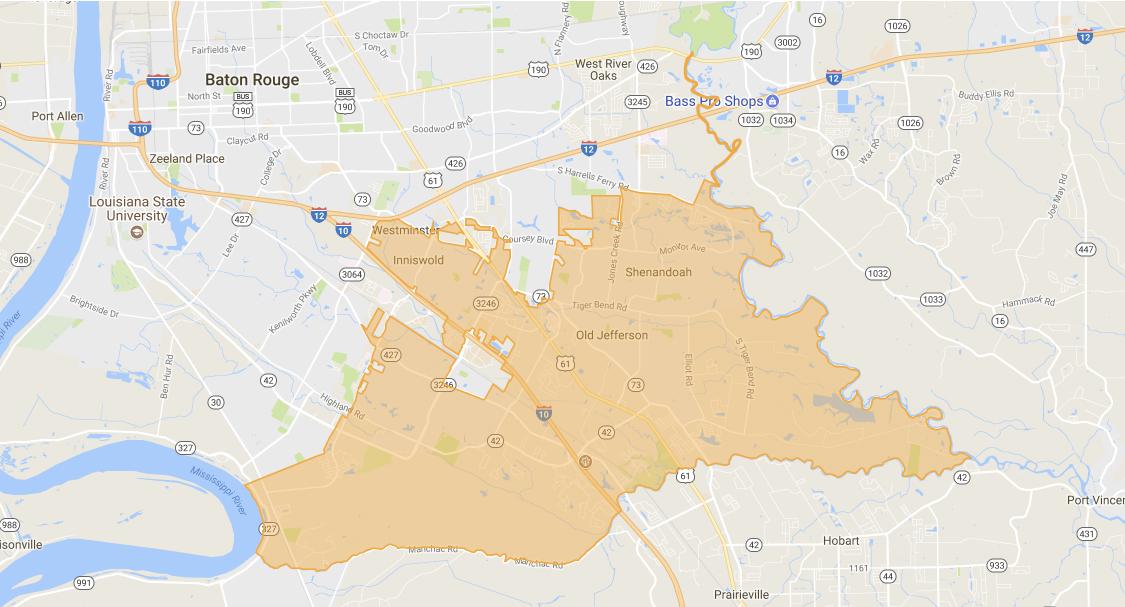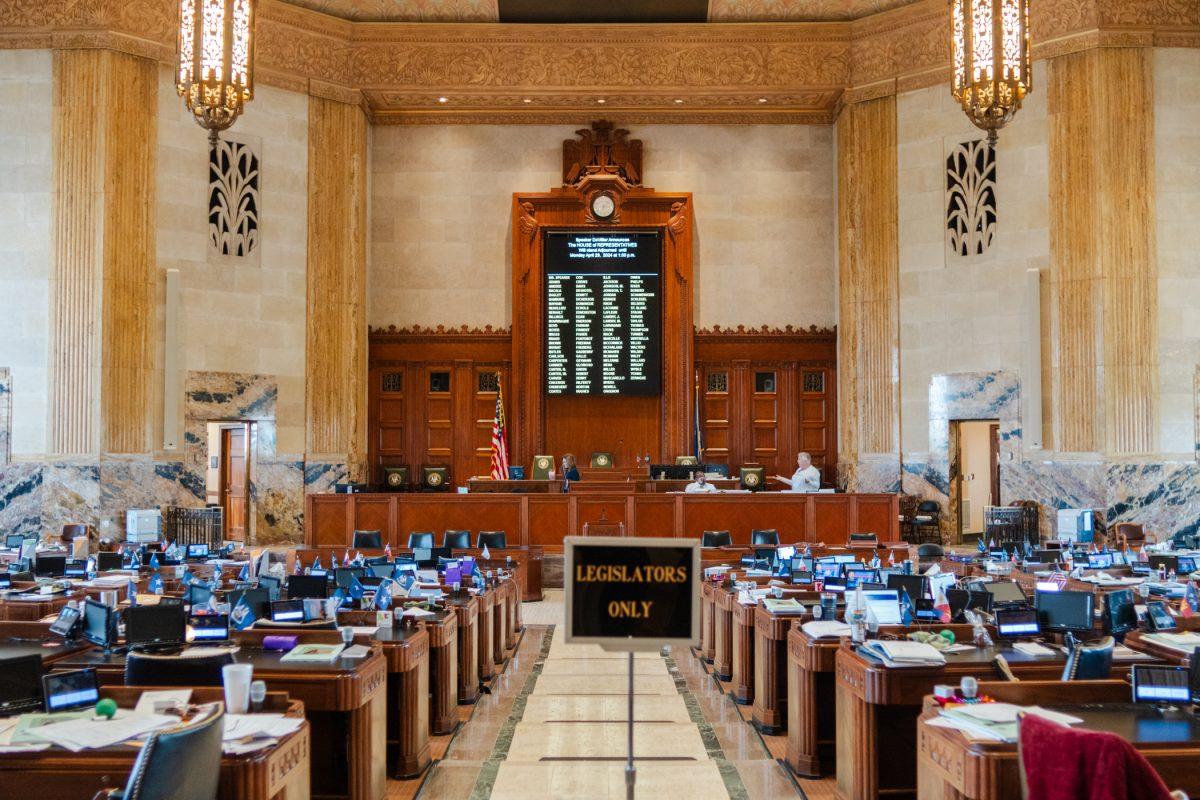WASHINGTON (AP) — Less than five miles from the White House, separated by a river and so much history, people spoke of popping champagne, of winning the lottery. They remembered those who died before witnessing this day, and they stored away “I Voted” stickers as if they were precious heirlooms.
In the often forgotten neighborhood of Anacostia, people talked about history — slavery and separate water fountains. They reached in vain for adjectives that were big enough — excited, ecstatic, astonishing. Some just leaned out of car windows and shouted: “Obamaaaaaa!”
“What did Martin Luther King say? We’re going to the mountaintop? That’s how I feel,” said Delores Oliver, standing in the parking lot of the hilltop Washington View Apartments, with the famous part of Washington spread out in the distance below.
Millions of voters who swamped churches and schools and community centers Tuesday paused to consider what generations before had been brutalized for, died for and only dreamed of: The chance to vote a black man into the White House.
In the cities that have written the long, tortured history of race in America — places where slaves were bought and sold, where a Declaration of Independence prematurely called “all men” equal, where black schoolchildren faced segregationist mobs — voters black and white spoke of joy, pride and utter disbelief.
“Look where black people came from,” said Dasmin Hollaway, a black college student, not far from where nine students faced down angry crowds and the governor of Arkansas in 1957 to integrate Central High School in Little Rock.
“We started off as slaves,” Hollaway said after voting for Obama. “Now look.”
Now look. Centuries after a nation was founded on freedom but enslaved its own, 143 years after race tore it in half, 45 years after King dreamed and 40 after he died, Americans had the opportunity to elect the son of a Kenyan and a Kansan as leader of the free world.
George Palmer, a 41-year-old computer analyst, considered the weight of it as he waited with his wife, Joetta, and their 5-year-old twins, Justin and Jasmine, to vote for Obama.
They were in line at Burke High School in Charleston, S.C., next to the Citadel military academy, whose cadets fired on a Union steamer en route to Fort Sumter on Jan. 9, 1861. They were not far from where hundreds of thousands of slaves had been traded.
Palmer’s thoughts were on more recent memories.
“When I was a kid and my mom told me I could be president, I didn’t believe it,” said Palmer, who is black. “But if he wins today, when I tell my son, ‘Hey, you could be president one day,’ he will believe it.”
At another voting precinct in Charleston, the white longtime mayor, Joseph P. Riley Jr., was waiting in line. He called the election “just a wonderful remembrance of what America is — that people freely have the capacity to progress.”
Riley cited the landmark Brown vs. Board of Education decision: To be here 54 years later, he said, was “just a wonderful fact about America.”
The Brown decision took its name from Oliver Brown, whose daughter had to take a bus to segregated Monroe Elementary School, kept out of a white school much closer to their home.
The building, in Topeka, Kan., is now a national historic site. And on Tuesday, in what used to be a second-floor classroom, Ralph Hoover, a white, 68-year-old retired probation officer, voted for Obama. He called Obama’s candidacy “cleansing” for the United States.
“People will grow to trust him — if they don’t already,” he said. “I think it’s genetic in us, to worry about superficial things.”
Today, America celebrates what began in Topeka. But race in America is also about scars, deep and persistent.
There is New Orleans, also an old slave-trade city. In the Crescent City, only three years ago, a natural disaster forced Americans to confront images of impoverished black neighborhoods under water, desperate black families begging from rooftops for help that was too slow to arrive.
In the Lower 9th Ward, at Martin Luther King Jr. Charter School, the voter lines were short Tuesday — not because of a lack of interest, but because the neighborhood is still a sparse landscape more than three years after Hurricane Katrina.
Josetta White, 39, and her daughter Clare, 12, showed up with two goals. First, the mother would vote for the man she believed gave the New Orleans its best shot at revival. Then they would walk down eight deserted blocks to check on their old house.
“It can’t get any worse,” the older White said. “I voted for him (Obama) not because I think he can change everything, but because I think he’ll try. … Either way it ends, this is history today.”
Decades apart, two other scars marked Los Angeles: The Watts race riots, which raged for six days in 1965, and the deadlier 1992 riots that exploded after four white police officers were acquitted in the videotaped beating of black motorist Rodney King.
In the Crenshaw district, half a block from Martin Luther King Boulevard and down the block from a lifelike mural of Obama spray-painted on the side of a building, Charles Kinsey, a black, 48-year-old mechanic, waited half an hour to vote on Tuesday. He said he would have waited a lot longer.
“It’s an emotional day, no doubt,” Kinsey said. “When Obama started running, I thought it was great. But I thought, you know, Hillary or whoever would beat him. But here we are! Lord, I just voted for a black man for president. How about that?”
And so, 232 years after the Declaration of Independence had promised that “all men are created equal,” and pledged liberty to men who owned other men, the course of human events had arrived here: Tens of millions of Americans voting for an African-American man for president.
In Philadelphia, where the declaration was signed, Dolores Whitaker said her city’s historic roots had meant little to her. She is 72, and when she moved to Philadelphia more than half a century ago, she said employers had taken one look at her skin and turned her down for jobs.
Maybe one day the phrase “all men are created equal” will be realized, she said. Not overnight. But she said Obama is proof to the next generation of black children that anything is possible.
“They can look now and say, ‘Yes, I can,'” Whitaker said. “I truly believe that.”
Back in Anacostia in the nation’s capital, Anthony Shuford remembered riding past the White House on the No. 32 bus, wondering if the president had any idea what his life was like. And he remembers “knowing I’m coming across the bridge to a poverty-stricken neighborhood, to abandoned buildings, knowing right across the bridge is Capitol Hill.” And he remembered his father, dead two years now: “I’m casting my vote for myself, and for him.”
After voting for Obama on Tuesday, he will never look at the White House — or his country — the same way. He felt like heading back across that bridge to 1600 Pennsylvania Ave., “just to support and rejoice.”
“We got our 40 acres,” chimed in Shuford’s friend, Monte Butler. “We didn’t get the mule yet, but that will come.”
At the Washington View apartments, Delores Oliver, 68, said that she only drinks on New Year’s Eve — but she bought a small bottle of champagne on Tuesday. Cradled in her palm was the small “I Voted” sticker she had received hours before.
Her friend Verdell Winder has affixed his sticker to the back of his driver’s license.
“It feels like I’m still in a daze, in amazement,” said Winder, 41. “It’s like hitting the lottery. I see the numbers, I’m dazed with it, totally ecstatic, but until I get the money in my hand and cash that ticket, I don’t want to (get) totally excited.”
Standing next to Winder and Oliver, Eugene Queen, 74, remembered being forced to drink from segregated water fountains in his nation’s capitol. “I ain’t gonna never forget that,” he said.
But today, Queen said, voting for Obama “just makes me feel wonderful. Just the idea that he made it.”
——Contact The Daily Reveille news staff at [email protected]
Obama on the ballot: Elation and disbelief – 5:50 p.m.
November 4, 2008






